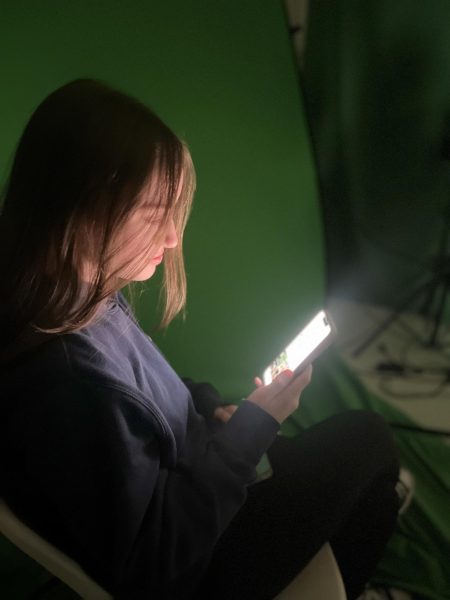The average high schooler spends 6 hours and 58 minutes of their day on a screen connected to the internet. Before Covid-19, an average high school student spent 4.4 hours on a screen everyday, as a result of the pandemic, students have experienced an added 2.7 hours on screens, that’s more than a 60% increase.
Along with an increase in screen time, many adolescents have experienced a decrease in good mental health. Depression, sleep disorders, and anxiety are all linked to excessive screen time usage as we feel the need to stay plugged in. Issues with self-esteem have also started to arise as social media posts distort the realities of students’ images of themselves. What young adults and children see in social media impacts them more than it does adults because they are in a different, more impactful, phase of development. An average human brain finishes development at around 20- 25 years old. Dr. Vivek Murphy from New York Times stated, “a new technology that’s rapidly evolving and that fundamentally changes how kids perceive themselves,”. Low self-esteem and bad mental health are also only a few of the issues connected to technology and high screen-time.
Deletecyberbullying.net said that cyberbullying is also another massive problem. People like hiding behind the screen to bully others online. It is found people feel more comfortable cyberbullying rather than saying it face to face because they feel they won’t be caught or get in trouble.
Some of the leading apps that take up our screen time are social media apps like Instagram, TikTok, Youtube, and Facebook. 58% of the world’s population is on social media. That is around 4.76 billion people. People think this addiction has to do with the FOMO concept. FOMO stands for fear of missing out. People will constantly check their phones to keep up with trends and what is going on. The idea of missing out can heavily affect your mental health. You could say social media is not the problem but rather how people use it. We asked three different West High students about their screen time…

Nina Swartzendruber 27’ thought her average screen time was going to be around 3 to 4 hours a day. “This is gonna be humbling,” Swartzendruber stated. She checked and it was three hours and 46 minutes. “Not bad!” Swartzendruber said. Her most u
sed app was close between Tiktok and SnapChat. Jessie Li 25’ average screen time is 10 hours, Li thought her screen time would be around eight hours a day, so she wasn’t too surprised to see that it was 10 hours. Her most used app is instagram. Maddux Neukirch 27’ guessed his screen time was 4 hours he checked and his average screen time is actually 3 hours and 23 minutes. Neukirch says “My most used app is instagram, I’m a pretty
bad scroller.”
The issue with screen time is not just at West High, it’s all around the world. The average screen time in South Africa is 9.38 hours a day. This is the highest screen time in the world. This means around three fifths of their day would be spent in front of a screen. The country with the lowest screen time is Japan. Japan’s average screen time is 3.45 hours a day. Japan has laws put in place to limit screen time. These laws consist of 1 hour per weekday and 90 minutes on weekends. Younger children have to turn off their phones at 9 p.m. every night and older teens have to turn them off at 10 p.m. Japanese law says that children that spend too much time on their phone and playing video games don’t do as well in school and have worse eyesight.












